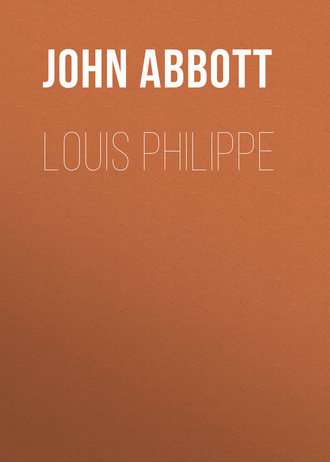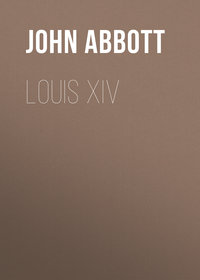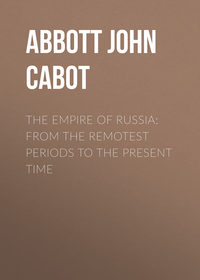
Louis Philippe
Calumnies of the journals.
"The triumph of legitimacy," says Mr. Wright, "which dethroned Napoleon," inspired its followers in foreign lands with new zeal, fresh devotion, and increased prospects of ascendency. In England the most servile of that faction had the malignity to invent and publish, by means of the dishonest portion of the daily press, the grossest and most painful calumnies against the Duke of Orleans. The Bourbon faction, expert at calumny and intrigue, employed every means their art supplied to accomplish their darling object, which was the still further separation of the elder from the younger branch of the royal family. It was now that the persecutors of the Duke of Orleans hit upon the scheme of defaming him by forgery. They forged various protestations and confessions of faith, which they subscribed with the name of Louis Philippe, and procured their publication in English journals; "the tendency of which was to place him in a false position with respect to the elder branch of his family."
Return of the Bourbons to Paris.
The hundred days of Napoleon's second reign passed rapidly away. The defeat at Waterloo restored Louis XVIII. to the throne, with a better prospect of its permanent possession. Napoleon, in the long agony at St. Helena, expiated the crime of raising the banner of Equal Rights for All Men, in opposition to the exclusive privileges of kings and nobles. Louis XVIII., escorted by nearly a million of foreign troops, returned to the Tuileries. All the members of the royal family followed from their wide dispersion. Louis Philippe joined the crowd, and again presented himself in the royal saloons. The king suspected him, and in the presence of a full court received him with marked coldness. Conscious of his own unpopularity, and of the general impression that the Duke of Orleans was tinctured with liberal sentiments, the king was ever apprehensive that a faction might arise in favor of placing the Duke of Orleans upon the throne.
The shrewd, intriguing Fouché, duke of Otranto, in a letter written to the Duke of Wellington at this time, says:
"The personal qualities of the Duke of Orleans, the remembrance of Jemappes, the possibility of making a treaty which would conciliate all interests, the name of Bourbon, which might serve outside, but not be pronounced within – all these motives, and many others that might be mentioned, present in this last choice a perspective of repose and security even to those who could not perceive in them an omen of happiness."
The duke's possessions restored.
The duke returns to the Palais Royal.
Though the king declined the assistance of the Duke of Orleans in reorganizing his government, he restored to him his vast ancestral possessions. Recrossing the Channel, the duke conducted his family from Twickenham back to the sumptuous saloons of the Palais Royal. A royal ordinance commanded all the princes of the blood royal to take seats in the Chamber of Peers. Under this decree the Duke of Orleans became a member of that august and influential body.
And now commenced the reign of what was called the Terreur Blanche, or White Terror, consisting of a series of proscriptions and bloody executions, under the white flag of the Bourbons, which shocked the spirit of humanity. Unrelenting revenge was dominant. Marshal Ney, General Labedoyere, and many others of the noblest men in France, were ere long put to death or driven into exile. The friends of Louis XVIII. in the Chamber of Peers urged on these merciless executions. A resolution was introduced into that body and strongly supported, calling for the exemplary chastisement of all political delinquents. There were a few who indignantly repudiated this revengeful spirit.
The Duke of Orleans ascended the tribune. His person was but little known by the majority of those present. As the son of Egalité, and as one suspected of liberal principles, he was hated by the returned emigrants of the old Bourbon party. As he took his stand in the tribune there was breathless silence throughout the whole assembly. Every eye was fixed upon him. His majestic figure, his fine countenance, intellectual, thoughtful, upon which there remained the traces of many sufferings, his calm, dignified, self-possessed bearing, and his exalted rank as a prince of the royal line, created profound sentiments of respect. For a moment he looked upon the assembly in silence. Then in slow, solemn, decisive terms he remonstrated against the malevolent spirit which was being developed.
Humanity of the Duke of Orleans.
"I propose," said he, "the total suppression of the obnoxious clause. Let us leave to his majesty's parental care the charge of maintaining public order. Let us not urge a revengeful spirit which malevolence may convert into a weapon for disturbing the peace of the nation. Our position as judges of appeal over those very individuals to whom you recommend the exercise of severity, rather than of mercy, should impose absolute silence upon us in respect to them."
These just and noble sentiments the majority applauded, and the vote was carried in behalf of humanity. But the king and his coterie were very angry, and assailed the duke in the most violent terms of condemnation. The king, in a petty spirit of revenge, issued a decree, recalling the ordinance that all the princes of the blood royal were to sit in the Chamber of Peers, and declaring that none in future were to appear there but by special authority of the king, delivered at each particular sitting.
The duke persecuted by the court.
This was intended as a deliberate insult to the Duke of Orleans, to exclude him from the Chamber of Peers, and to degrade him in the eyes of the partisans of the king. This pitiful spirit of persecution greatly increased the general popularity of the duke, which led to a redoubled clamor of calumny on the part of his opponents. He was accused of seeking to rally around him the malcontents, of courting the favor of the populace, and of trying to organize an Orleans faction in his interests.
The clamor was so loud and so annoying, and the duke found himself so entirely excluded from the sympathies of the court and of the dominant nobles, that, to escape from the storm, he imposed upon himself voluntary exile, and again, forsaking France, sought refuge with his family in his English retreat at Twickenham.
The annoying report was circulated, that the duke was banished by an indignant decree of the king, which, out of regard to the duke's feelings, he had not made public. Louis Philippe was fully conscious of the great unpopularity of the elder branch of the Bourbons, and of the feeble tenure by which they held their power, sustained against the popular will by the bayonets of the Allies.
Execution of Marshal Ney.
The duke had hardly arrived at Twickenham ere he received an affecting letter from the wife of Marshal Ney, entreating him to intercede with the Prince Regent of England for the life of her noble husband, then in prison awaiting the almost certain doom of death. The duke did plead for him in the most earnest terms; but his efforts were unavailing. Thus one of the most illustrious of the sons of France, "the bravest of the brave," was led out into the garden of the Luxembourg and shot down like a dog. Marshal Ney had fought a hundred battles for France, not one against her. His crime was, that, having accepted command under the Bourbons, he had been guilty of treason in deserting his standard, and had welcomed back the emperor, whom he had served in so many battles, and whom he so dearly loved. By the capitulation of Paris it was expressly declared that "no person should be molested for his political opinions or conduct during the Hundred Days;" but the Allies paid no regard to their plighted faith.19
Again an exile.
One important object of Louis Philippe, in withdrawing from France, was to avoid the embarrassment of being brought forward in opposition to the king, and in being made the head of the Liberal party. This refusal to identify himself with any democratic movement rendered him very popular with the English Court, a popularity increased by England's adoration of exalted rank and princely fortune. The duke was received, in palace and castle, with splendid hospitality, which he frequently eclipsed in the brilliant entertainments which he in return gave at Twickenham.
The duke now devoted himself, in his voluntary exile, to the administration of his sumptuous household, and to the rearing of his rapidly increasing family, abstaining entirely from all participation in the politics and intrigues of Paris. His mansion was ever thronged with distinguished guests, and multitudes, ruined by the storms which had swept over their several lands, frequented his saloons, seeking pecuniary aid. The applicants were so numerous and the claims so complicated, that the duke found it necessary to establish a bureau of charity to examine these claims and to disburse his bounty.
In 1817 the duke returned to France, and divided his time between the Palais Royal and his magnificent rural retreat at Neuilly. Wealth, rank, and hospitality will always draw a crowd. The duke lived, as it were, in a small but brilliant court of his own. He seldom appeared in the court of Louis XVIII., and took no part in public affairs. Much of his time was devoted to superintending the education of his very interesting group of children. Madame de Genlis gives the following description of this ducal family:
Testimony of Madame de Genlis.
"I continued to pay my respects to Mademoiselle d'Orleans, who is still as kind and affectionate towards me as ever. I saw the young Prince de Joinville, who was only two years old, but who spoke as distinctly as a child of six or seven. He was also as polite as he was handsome and intelligent. In fact, the whole family of the Duke of Orleans is truly the most interesting I ever knew. The members of it are charming by their personal attractions, their natural qualities and education, and by the reciprocal attachment of parents and children."20
The princes in the national lyceums.
Democratic tendencies of the duke.
But again the duke incurred the displeasure of the court. Anxious that his sons should derive the benefit of free intercourse with the world, he decided to place them, for the completion of their education, in the national lyceums. Here they were on a level with other boys, and could only secure distinction by merit. The court, however, and the old nobility, deemed it gross contamination for princes of the blood royal to associate with the children of citizens, and they regarded the measure as merely another attempt on the part of the Duke of Orleans to secure the favor of the populace. Even the king himself remonstrated with the duke upon the impropriety of his course. But the duke reminded his majesty that their illustrious ancestor, Henry IV., had been thus brought up, having been sent by his mother to the public school in Berne.
One of the Paris journals, commenting upon this republican measure of the duke, wrote: "Already has the Duke of Chartres, the eldest son of the Duke of Orleans, entered a college in Paris; a natural thing, it may be said, provided he is only old enough to comprehend the course of study. Princes have not hitherto been seen in public colleges since princes and colleges were in existence; and this noble youth is the first who has been educated in this manner.
"What would that great king Louis the Superb say – he who could not tolerate the idea even of his illegitimate children being confounded with the nobility of the kingdom, such was his sensitiveness in view of the degradation of the blood royal – if he beheld his grand-nephew, without page or Jesuit, at a public school, mixing with the common herd of the human race, and disputing with them for prizes, sometimes conquered, sometimes conqueror!"
Chapter VI
The Death of Louis XVIII., andReign of Charles X
1816-1830We have alluded to the Duke de Berri, the second son of Count d'Artois. As he became the father of Count de Chambord, the present Legitimist claimant of the throne of France, his career calls for more minute mention.
Marriage of the Duke de Berri.
On the 28th of March, 1816, the French people were informed, by an announcement to both of the Chambers, that the young Duke de Berri was about to enter into a matrimonial alliance with Caroline Mary, eldest daughter of the heir to the crown of Naples. Caroline Mary was the niece of the Duchess of Orleans, being the child of her brother. The Chambers, in token of their satisfaction, voted the Duke de Berri a nuptial gift amounting to three hundred thousand dollars. The duke manifested his generous character, and won great popularity, by accepting the gift only upon condition that he might be allowed to distribute the sum among the poor in the provinces, who were then suffering severely from famine.
Family of the Duke de Berri.
The marriage proved a happy one, until death sundered the tie. Caroline Mary, who thus became the Duchess de Berri, was of sylph-like grace of figure, beautiful in features, and by her affable manners and unaffected amiability won all hearts. Four years glided swiftly away. Two children were born, a son and a daughter; both died in infancy. A third child proved to be a daughter. As, by an ancient law of the realm, daughters were not eligible to the throne of France, there was great anxiety felt throughout the kingdom. Unless a prince were born, there would be a failure in the direct line of succession, and civil war might be the result. On the 13th of February, the duke and duchess attended the opera. The duchess was expecting soon again to be a mother. By the sudden opening of a door, she was unexpectedly struck in the side with violence, which caused her some alarm, and she expressed the wish to return home.
Assassination of the Duke de Berri.
The duke led her to her carriage. She took her seat in it, saying to him with a smile, "Adieu; we shall soon meet again." As the duke was returning to the opera, an assassin, by the name of Louvel, who had been lying in wait for him, sprang from the darkness of a projecting wall, and seizing the duke by the shoulder with one hand, with the other plunged a dagger to the hilt in his side. It was the deed of an instant, and the assassin, in the darkness, fled, leaving the dagger in the side of the victim.
The footman was just closing the door of the carriage of the duchess when she heard her husband cry out, "I am assassinated! I am dead! I have the poniard! That man has killed me!" With a shriek, the duchess sprang from her carriage and clasped her husband in her arms, as the gushing blood followed the dagger which he drew from the wound.
"I am dead!" exclaimed the duke. "Send for a priest. Come, dearest, let me die in your arms!"
The dying scene.
The dying man was conveyed to an adjoining room, and medical attendance was summoned. Nothing could staunch the gushing blood, and life was rapidly ebbing away. The duke was informed that the assassin was arrested. "Alas!" he said, "how cruel it is to die by the hands of a Frenchman!" Overhearing some one say to the almost distracted duchess that he hoped the wound would not prove fatal, the duke replied, "No; I am not deceived; the poniard has entered to the hilt." His sight became dim, and he inquired, "Caroline, are you there?" "Yes," she answered, "and I will never leave you."
His father's confessor, the Bishop of Chartres, entered, and the dying man had a few moments of private conversation with the ecclesiastic. He then called for his infant daughter. She was brought to him, asleep, for it was near midnight. Placing his hand upon her head, he said, "Poor child! may you be less unfortunate than the rest of your family."
The wound ceased to bleed externally, and its inward flow threatened suffocation. The duke's physician, M. Boujou, endeavored to restore circulation by sucking the wound. "What are you doing?" exclaimed the duke. "For God's sake stop! Perhaps the poniard was poisoned." Respiration was now very difficult, and the hand of the duke was clammy with the damp of death. As a last resort, the surgeon, with his knife, opened and enlarged the wound. The duke, grasping the hand of the duchess, patiently bore the painful operation, and then said, "Spare me further pain."
Turning to his wife, whom he tenderly loved, he said, "Caroline, take care of yourself for the sake of our infant, which you bear in your bosom."
Assembling of the royal family.
The duke and the duchess of Orleans, being immediately summoned, were the first of the relatives to arrive in this chamber of death. They were speedily followed by the Count d'Artois, the father of the sufferer, and by the Duke d'Angoulême, his elder brother. Other members of the royal family soon arrived. In the feeble accents of approaching death, the duke inquired,
"Who is the man who has killed me? I wish I could see him, to inquire into his motives. Perhaps it is some one whom I have unconsciously offended. Would that I might live long enough to ask the king to pardon him. Promise me, my father, promise me, my brother, to ask of the king the life of that man."
Another touching scene, of a very delicate nature, which I can not refrain from recording occurred in this solemn hour. It was manifest to the duke, as well as to all of his friends, that before the hour should expire the spirit of the dying would pass to the tribunal of that God in whose presence both prince and peasant are alike. The memory of all past sins, in such an hour, often crowds the soul with its tumultuous array. In whispering tones, inaudible to others, a few words were interchanged between the dying man and his wife. Then two illegitimate children, who were born to the duke when he was an exile in London, were brought in. It seems that he had ever recognized them as his own, and that they had been protected and fostered by both himself and his lawful wife.
As these children entered the chamber, and knelt, sobbing convulsively, at their father's dying bed, the duke embraced them tenderly, and, turning his fading eye to his wife, said,
"I know you sufficiently, Caroline, to be assured that, after me, you will take care of these orphans."
Noble conduct of the Duchess de Berri.
The duchess responded in an action far more impressive than words. Taking her own babe into her arms from its nurse, she drew the unfortunate children to her bosom, and said, "Kiss your sister." It was a noble deed. All eyes were suffused in tears. Few can read the simple record without emotion.
The duke then received, from the bishop, absolution, repeatedly attempting the prayer, "My God, pardon me, pardon me; and pardon the man who has taken my life!"
Just then the king, Louis XVIII., who was very infirm, arrived. "My uncle," said the dying man, "give me your hand, that I may kiss it for the last time. I entreat you, in the name of my death, to spare the life of that man."
The king replied, "You are not so ill as you suppose. We will speak of this again."
"Ah!" exclaimed the duke, "you do not say yes. The pardon of that man would have softened my last moments, if I could die with the assurance that his blood would not flow after my death."
Death and burial.
These were his last words. There was a slight gasping, a convulsive shuddering passed over his frame, and the spirit of the duke took its flight to the judgment-seat of Christ. The remains were conveyed, with much funereal pageantry, to the vaults of St. Denis, the ancient mausoleum of the kings of France. Louvel, a miserable fanatic, who sought notoriety by the murder of a prince, expiated his crime upon the scaffold.
Seven months after this assassination, on the 20th of September, 1820, the Duchess de Berri gave birth to a son. He was christened Henry, duke of Bordeaux. He is now known as the Count de Chambord, the Legitimist candidate for the throne of France. Indeed the Legitimists regard him as their lawful sovereign, though in exile, and give him the title of Henry V.
Louis XVIII. retained the throne, upon which the Allies had placed him, for eight years, until his death. He was a good-natured, kind-hearted old man, but so infirm from gout and excessive obesity, that he could with difficulty walk, and he was wheeled around his saloons in a chair. Lamartine, whose poetic nature ever bowed almost with adoration before hereditary royalty, gives the following pleasing account of his character:
Character of Louis XVIII.
"His natural talent, cultivated, reflective, and quick, full of recollections, rich in anecdotes, nourished by philosophy, enriched by quotations, never deformed by pedantry, rendered him equal, in conversation to the most renowned literary characters of his age. M. De Chateaubriand had not more elegance, M. De Talleyrand more wit, Madame De Staël more brilliancy. Since the suppers of Potsdam, where the genius of Voltaire met the capacity of Frederick the Great, never had the cabinet of a prince been the sanctuary of more philosophy, literature, talent, and taste."
Death of Louis XVIII.
To this it should be added that he was devoted to the interests of the aristocracy; that his mind was almost exclusively occupied in making happy hits in conversation, and in writing graceful billet-doux; that the priests and the nobles controlled him through the all-persuasive influence of the fascinating Madame Du Cayla. He died on the 16th of September, 1824. As his last hour approached, and his extremities became cold, and it was manifest that he had but a few moments to live, his mind remained clear and composed. Assuming a cheerful air, he said to his family, gathered around his bed:
"A king of France may die, but he is never ill. Love each other, and thus console yourselves for the disasters of our house. Providence has replaced us upon the throne."
He then received extreme unction, bade adieu to all, and, ordering the curtains of his bed to be closed, composed himself as for ordinary sleep. With the earliest dawn of the morning the chief physician opened the curtains, and found that his pulse was just ceasing to beat. In a few moments he breathed his last. In accordance with court etiquette the physician said, solemnly, "The king is dead." Then, turning to the king's brother, Charles, previously known as the Count d'Artois, he bowed and said, "Long live the king."
Charles X. and family.
Charles X., into whose hands the sceptre thus passed, was then in the sixty-seventh year of his age – having been born in Versailles, October 9, 1757. This unfortunate monarch is represented, by his friends, as having been one of the most accomplished of men. His horsemanship attracted universal admiration. In all social circles he charmed every one who approached him by his grace and courtesy. He was warm-hearted and generous. Though in early life a man of pleasure, he had become quite a devotee; and, to an extraordinary degree, was under the influence of the priesthood. Leaving the affairs of State in the hands of others, he gave his time, his thoughts, his energies, to the pleasures of the chase. This pursuit became, not his recreation, but the serious occupation of his life.
Charles was the father of two sons. The eldest, and consequently the heir to the crown, was the Duke d'Angoulême. He had married the daughter of Louis XVI., whose sufferings, with her brother, the dauphin, in the Temple, have moved the sympathies of the whole civilized world. The duke and duchess were childless, and with no hope of offspring.
His second son, the Duke de Berri, had been assassinated, as we have mentioned, about four years before, as he was coming from the opera, leaving his wife enciente. In the course of a few months she gave birth to a son – the Duke of Bordeaux. This child – now called Count de Chambord – was the legitimate heir to the throne, next to his uncle, the Duke d'Angoulême.
Six years of the reign of Charles X. passed away, during which the discontent of the people was continually making itself increasingly manifest. They regarded the Government as false to the claims of the masses, and devoted only to the interests of the aristocracy.
Ball at the Palais Royal.
The spirit of discontent which had long been brooding now rose in loud and angry clamor everywhere around the throne. The court was blind to its peril; but thoughtful men perceived that the elements for a moral earthquake were fast accumulating. In the midst of these hourly increasing perils, the Duke of Orleans, on the 31st of May, 1830, gave a ball at the Palais Royal in honor of his father-in-law, the King of Naples. This festival was of such splendor as to astonish even splendor-loving Paris, and was long remembered as one of the most brilliant entertainments the metropolis had ever witnessed. The immense fortune of the duke, his refined taste, and the grandeur of the saloons of his ancestral palace, enabled him almost to outvie royalty itself in the brilliance of the fête.









